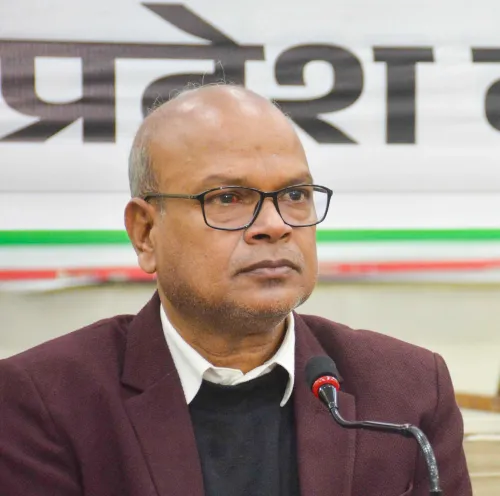Why Did the Calcutta HC Impose an Interim Stay on Bengal Govt's Stipend for Non-Teaching Staff?

Synopsis
Key Takeaways
- Interim stay imposed by Calcutta HC restricts stipend payments.
- Suvendu Adhikari claims the state government acted hastily.
- Concerns over the government's motivations regarding the stipend.
- Legal experts identify flaws in the stipend announcement process.
- Political leaders from various parties weigh in on the implications.
Kolkata, June 20 (NationPress) A fierce political battle erupted in West Bengal following the Calcutta High Court’s interim stay on Friday, which prohibits the state government from disbursing stipends to non-teaching staff who lost their jobs after a Division Bench of the Supreme Court ruling in April this year.
Leader of the Opposition in the West Bengal Assembly, Suvendu Adhikari, stated that the interim stay was necessary due to the state government's rushed issuance of a notification last month that announced stipends for all non-teaching staff who had lost their jobs, including both those deemed “untainted” and “tainted”.
“In the past, there have been numerous instances where the state government announced financial aid to obscure their corrupt activities,” Adhikari asserted, adding, “They are repeating the same pattern in this situation. Hence, the interim stay was unavoidable.”
The Chief Whip of the BJP’s legislative party in West Bengal, Shankar Ghosh, accused the government of having ulterior motives behind the stipend announcement, claiming it was designed to safeguard the interests of “tainted” individuals who secured jobs through bribes to Trinamool Congress leaders, instead of providing genuine relief to “untainted” individuals who earned their positions legitimately.
“The state government’s hidden agenda regarding the stipend is evident, making the interim stay on its distribution legally necessary,” Ghosh commented.
Kunal Ghosh, the state general secretary of Trinamool Congress in West Bengal, argued that a compassionate initiative by Chief Minister Mamata Banerjee has been obstructed by politically motivated factions.
“While I cannot comment on the legal aspects of the interim stay or how the state government might respond, the motives of those contesting the stipends for job-losing non-teaching staff are certainly questionable,” Ghosh remarked.
Legal experts also suggest that the way the notification concerning stipends for non-teaching staff in Group-C and Group-D categories was issued contained legal inconsistencies.
According to them, given the substantial financial implications for the state treasury, the government failed to provide satisfactory answers to the Calcutta High Court regarding what benefits would return from the stipend payments to the affected non-teaching staff.










